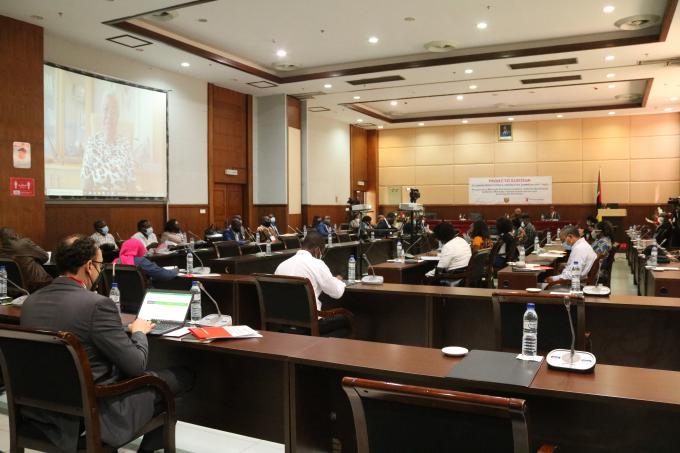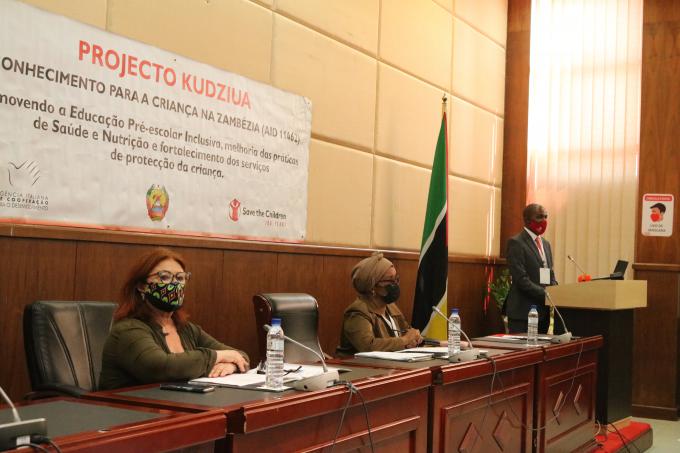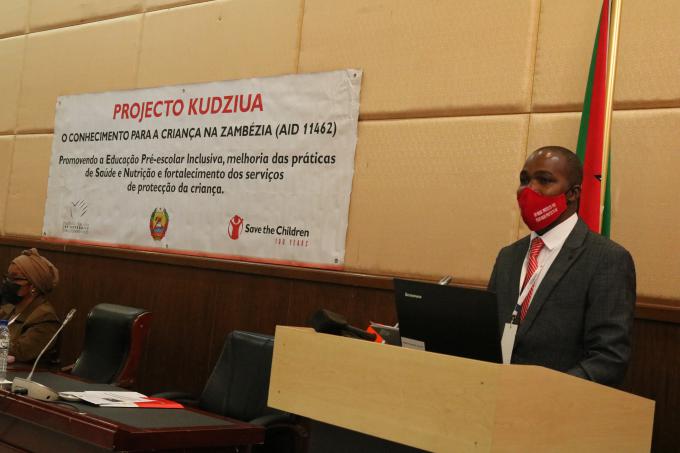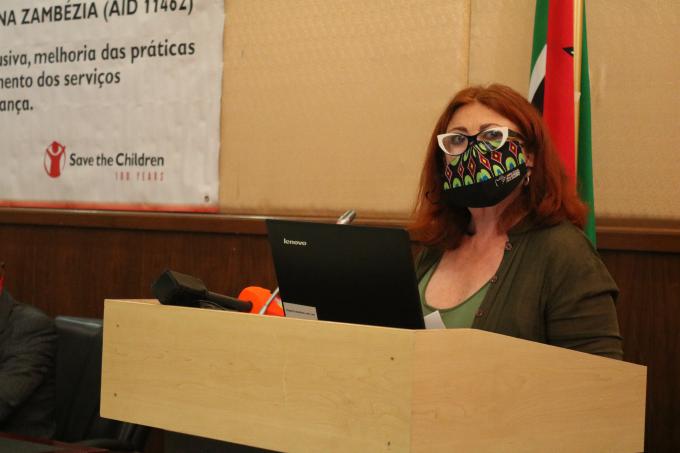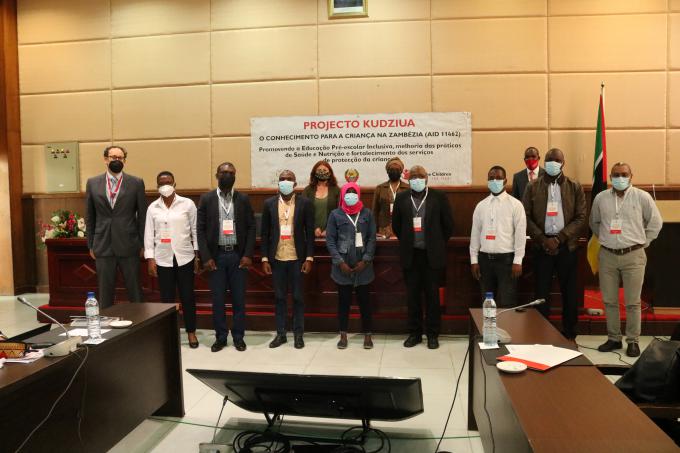Partners put emphasis on coordination and increased investment for childhood education
Education partners in Mozambique (Government, Civil Society Organizations, Development Agencies) agreed this week that, alongside the need to mobilize more resources to boost pre-school education in Mozambique, it is important that actors improve coordination and work together towards a National Policy on Pre-School Education. This understanding was reached during the National Conference on Pre-School Education in Mozambique that took place on September 29 in Maputo, organized by Save the Children. The event marked the end of the Kudziua Project.
The conference managed to bring together different specialists in childhood education, and the accent was that investments must ensure the construction of necessary infrastructure, as well as guarantee the sustainability of the educational sub-system. With a lack of investment, it is noted, in several cases, the difficulty of maintaining, for example, the early childhood animators/educators, often because there is no payment of subsidies. In fact, in this regard, as was made known at the meeting, the Ministry of Gender, Children and Social Action is encouraging child educators to come together in association to allow for a coherent dialogue.
Hence, the need to develop strong advocacy for the Government to strengthen the budget allocated to childhood also emerged, which could give the responsible institutions breath to develop the sector in a sustainable manner.
While this does not materialize, pre-school education remains highly dependent on funding and on non-governmental projects, such as Kudziua, with a strong component in the construction of infrastructure (community schools and playgrounds), especially for poor communities in rural areas.
In fact, the World Bank representative at the Conference, André Loureiro, announced a new partnership with the Government that should materialize, among other actions, in the construction of 100 new preschools, with geographic priority for the central and northern regions of Mozambique. At the same time, the World Bank will support the process of standardizing preschool education curricula as a reference and the training of animators. UNICEF is also committed to continuing to provide resources for the growth of this area now and in the future. Judas Massingue, Save the Children’s representative on the meeting, also said that the organization is committed to continue highlighting the early childhood education on its next strategic plan 2022-2024. The Director of the Italian Agency for Cooperation and Development (AICS) in Mozambique, Letizia Genevra, said that it continues its activities in the primary and preschool education sector in Mozambique, funding programs managed by Civil Society Organizations. Over the past three years, AICS has invested more than 5 million Euros in Early Childhood Education Development programmes.
Páscoa Ferrão, Deputy National Director for Children who participated in the Conference on behalf of the Government of Mozambique, said she noted with satisfaction that in recent years the issue of early childhood education has been duly debated by partners, with a clear tone on the need for greater investment.
“But it's not just money; it goes beyond that, because the investment must start in the mother's womb, move through the first 1000 days of life, and continue throughout childhood. It is in the first years of life that anomalies can be detected in the child and that can still be corrected at an early age. When this attention is lacking, evidence begins to appear when the child enters school. This meeting came to awaken the attention that we must have with the child in the first years of life”.
She also said that projects like Kudziua will always be welcome and that its current phase (closure) does not mean the end, but the beginning because it left all the foundations in the communities so that they can move forward.
She added that the preschool approach in the Mozambique is transversal, involving directly the Ministries of Education and Human Development; Gender, Children and Social Action; and Health. She underlined, however, that there are important sectors that should always be brought to the table for debate, namely the Ministry of Economy and Finance and the Assembly of the Republic. As she explained, they need to be equally sensitive to preschool education to ensure fair planning and budgeting.
In terms of coordination, the representative of the Ministry of Education, Inês Magode, stated that Mozambique has conditions to improve and move towards a specific strategy for preschool education and, similarly to some countries in the SADC region, produce a sectoral policy, that could drive progress.
The National Conference on Preschool Education in Mozambique, was funded by the Italian Agency for Cooperation and Development (AID 011462) to mark the closure of the Kudziua Project, which comes to the end of three years of implementation. Among the Kudziua results, according to Ilenia Guasti, the project manager, there are 12 community schools in Morrumbala and Milange, in Zambézia, benefiting 1,500 children aged 3-5, of which 660 transitioned to primary education. You can read more about the KUDZIUA PROJECT HERE.
 Mozambique
Mozambique 